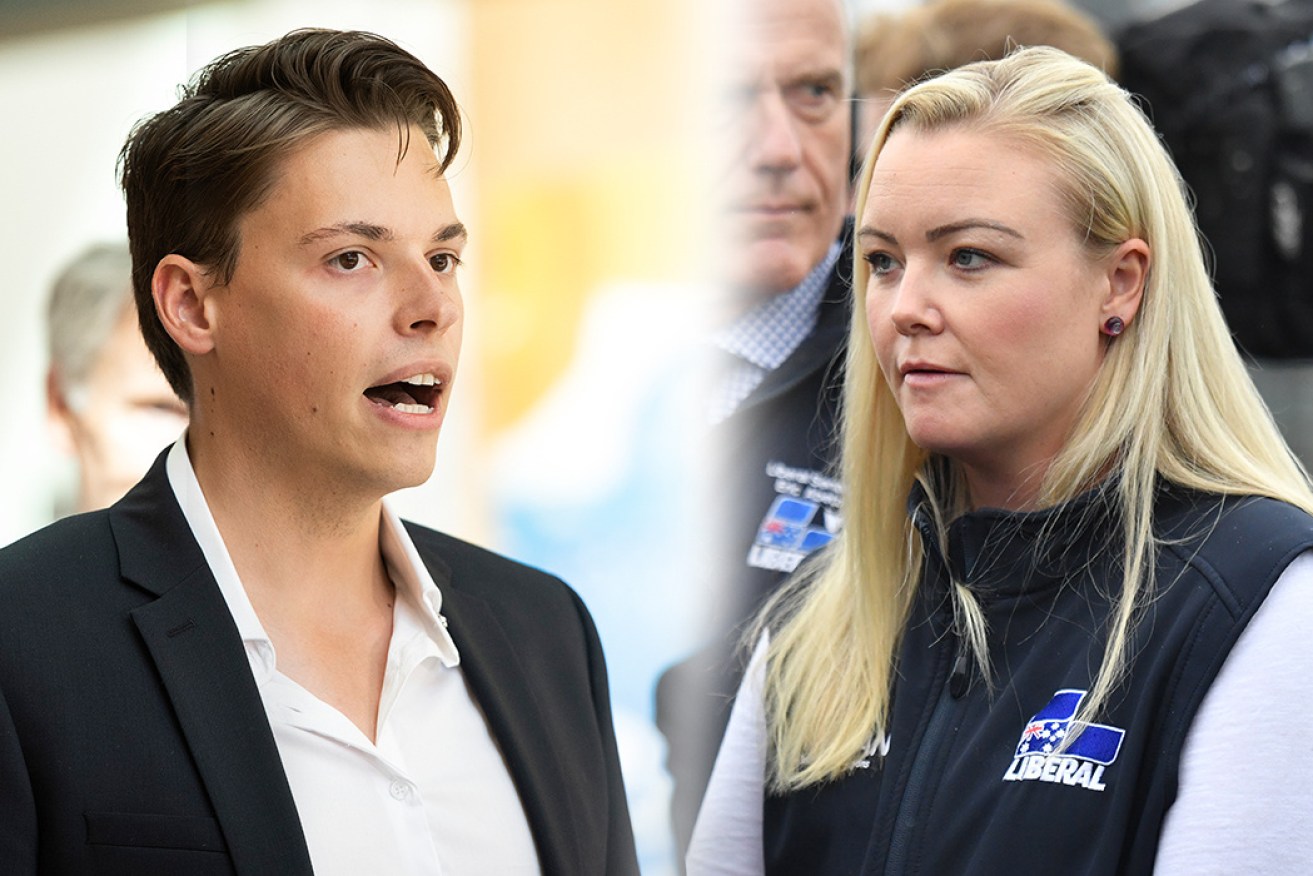There’s no spinning the ugly truth when politicians’ online words are way out of line


Labor candidate Luke Creasey and Liberal candidate Jessica Whelan have stepped down over offensive online comments. Photo: TND
The dumping of five federal election candidates this week over offensive online comments shows how social media can be a “useful tool” for voters, say political analysts.
It comes as Labor’s 28-year-old candidate for Melbourne, Luke Creasey, quit on Friday after being exposed over a number of Facebook “jokes” he made in 2012 about rape, group sex and lesbians.
His resignation followed Friday morning’s decision by Liberal candidate for Lyons, Jessica Whelan, to step down amid uproar over anti-Muslim sentiments expressed on social media.
Liberal candidate for Isaacs, Jeremy Hearn, was also dumped over anti-Muslim online comments, while Labor NT Senate candidate Wayne Kurnorth was dropped for sharing an anti-Semitic conspiracy theory and an Islamic State-themed meme online.

Liberal candidate Jessica Whelan at a campaign event on Thursday. Photo: AAP
Another Liberal candidate, Peter Killin in the seat of Wills, was disendorsed after it was revealed he had plotted to stop gay people being elected to office and party positions.
Monash University senior politics lecturer Dr Zareh Ghazarian said scrutiny of candidates’ social media accounts was a “useful tool for voters” because it can allow them to see and judge candidates’ unguarded public comments.
“If (the comments) are controversial or distasteful, we’re fortunate now that the technology exists for them to be held accountable and judged accordingly by the parties and voters,” Dr Ghazarian told The New Daily.
“It’s not necessarily going to do long-lasting damage to the party because most of these candidates were in seats where they were unlikely to win anyway, but the damage is that it derails the party’s overall campaign.”
He also said that one of the broader effects of recent social media scandals was that it worsened the public’s perception of politicians.
Monash University senior politics lecturer Dr Nick Economou said he was particularly disappointed to see young candidates caught out for posting offensive material online.
“I often hear that young people have to get involved in politics, but so far they’re not making a particularly good contribution,’ Dr Economou told The New Daily.
“I thought everybody had been socially conditioned not to be vile to people on the basis of their sexuality or their religion, and yet people are and they seem to be young people.”
What if a candidate is disendorsed?
You can still vote for a candidate who has resigned or been disendorsed, but you will not be able to vote for that candidate as a representative of the political party he or she formerly represented.
Instead, you will be able to vote for them only as an Independent.
For example, if you planned to give former Labor candidate Luke Creasey your vote, you can mark your ballot that way, but your vote will no longer go to Labor.
The reason for this is because the ballot papers for the May 18 election have already been printed, which means the names of disendorsed candidates will still appear on them.
Can a disendorsed candidate still win?
The chances are slim but not impossible.
In 1996, Pauline Hanson won the seat of Oxley after being disendorsed by the Liberal Party over her controversial comments published in The Queensland Times that called for the government to get rid of welfare assistance for Aboriginal people.
She carried on to win the historically safe Labor seat as an independent.








